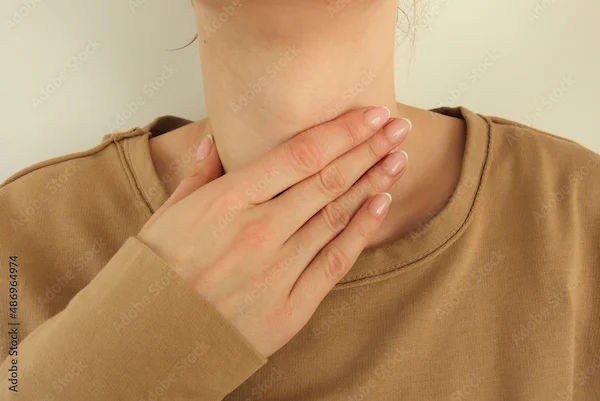Thyroid Ultrasound: All You Need To Know USG Thyroid!
Discover how thyroid ultrasounds detect nodules, cysts, and goitres. Learn about this safe, non-invasive diagnostic tool and its role in managing thyroid-related disorders effectively.

Written by Dr Sonia Bhatt
Last updated on 13th Jan, 2026
Ultrasound (USG) of the thyroid is a non-invasive diagnostic technique used to evaluate the structure of the thyroid gland and detect any potential abnormalities. The thyroid is a butterfly-shaped gland in the neck and plays a vital role in the regulation of metabolism. An ultrasound uses sound waves to create images of the thyroid and surrounding structures that provide valuable insights for the diagnosis of many thyroid-related disorders. It is safe, painless, and offers detailed images without surgery or injections. This article delves into how thyroid ultrasounds function, their diagnostic advantages, and the disorders they can detect.
When is a Thyroid USG Recommended?
A healthcare provider may suggest a thyroid ultrasound when one experiences symptoms indicative of a thyroid disorder. Here are the most common symptoms that usually require a thyroid ultrasound:
- Lump in the Neck: A visible or palpable lump in the neck may indicate a thyroid nodule or cyst, requiring further investigation.
- Neck Pain or Discomfort: Persistent neck pain or discomfort may indicate thyroid inflammation or other related issues.
- Difficulty Swallowing or Breathing: Enlargement of the thyroid may press against the oesophagus or trachea, causing difficulty swallowing or breathing.
- Hoarseness or Voice Changes: Hoarseness could indicate a nodule compressing the nerves or vocal cords.
Abnormal Thyroid Lab Results: An ultrasound can help identify structural problems in the thyroid gland If blood tests show abnormal thyroid hormone levels.
Why is a Thyroid USG Performed?
A thyroid ultrasound is performed under various circumstances, some of which include:
- Evaluating Thyroid Enlargement (Goitre): An ultrasound can help determine if the thyroid is enlarged, the extent of the enlargement, and whether it is unilateral or bilateral.
- Assessing Abnormal Thyroid Function Tests: This may be performed if other blood tests show abnormality in thyroid hormone levels.
- Evaluating Suspected Thyroid Cancer: If there is concern about thyroid cancer, an ultrasound can identify suspicious features that may require additional testing, such as a biopsy.
- Family History of Thyroid Disease or Cancer: An ultrasound may be suggested for screening if there is a family history of thyroid disease or cancer.
- Unexplained Neck Pain or Swelling: An ultrasound can be useful in evaluating unexplained neck pain or swelling and identifying possible thyroid abnormalities.
Consult Top Doctors For Thyroid USG
Guidelines for the Thyroid USG Procedure
USG of the thyroid is a simple, non-invasive procedure with no special preparation needed. However, following specific guidelines is important to ensure the procedure is successful:
Do’s for Thyroid USG
- Wear a loosely fitted top or open-neck shirt to provide easier access to the neck.
- Inform the specialist if you’ve had previous thyroid tests or neck scans.
- Remove necklaces or earrings, as those may interfere with the ultrasound probe.
- You may be instructed to swallow during the test so that the thyroid can be visualised better.
- The procedure is painless, so staying relaxed will make it a lot easier.
- There are no diet restrictions unless advised otherwise, so you can continue eating as usual.
Don’ts for Thyroid USG
- Avoid lotions or creams, as they may affect the quality of the ultrasound images.
- Don’t wear high-collared clothing, such as turtlenecks, as they may obstruct the neck area.
- Avoid heavy meals before the USG; while fasting isn’t required, eating lightly may make the procedure more comfortable.
How is a Thyroid USG Performed?
A thyroid ultrasound is simple and usually performed within a 15-30-minute time frame. The following describes the process:
- Gel Application: A water-based gel is applied to the neck to ensure smooth movement of the ultrasound probe and clearer images.
- Probe Use: The specialist uses a probe, known as a transducer, which transmits sound waves through the neck. The reflected sound waves are then detected by the probe and returned to it, where they are converted into real-time images.
- Image Capture: The specialist will take multiple images from different angles to ensure complete capture of the thyroid gland.
- Instructions: You will likely be asked to swallow a few times during the test to help with image production.
Completion: Once the gel is removed, you can go about your usual routine. Your doctor will then review the findings when you go for another appointment.
Interpretation of Thyroid USG Results
Interpretation of the result is fundamental in diagnosing thyroid disorder. Here’s what may be found during an ultrasound:
Normal Findings
Given below are the normal findings:
- Size and Shape: A healthy thyroid is small, symmetrical, and smooth. It usually weighs 15-20 grams, but this may vary depending on age and sex.
- Echogenicity: In normal thyroid tissue, there is an equal echogenicity. It, therefore, appears smooth and even all over.
- Vascularity: There should be a normal amount of blood flow, as visualised by small, distributed colour signals using Doppler ultrasound.
Abnormal Findings
Take a look at the possible abnormal findings:
- Thyroid Nodules: These are swollen lumps in the thyroid. While most are benign, features such as irregular borders, microcalcifications, or increased blood flow may suggest malignancy, prompting further tests like a biopsy.
- Thyroid Cysts: Fluid-filled spaces in the thyroid appear as dark regions on ultrasound. Simple cysts are usually benign, while complex cysts with both fluid and solid elements may require further evaluation.
- Goitre: An enlarged thyroid gland, known as goitre, may result from iodine deficiency or autoimmune thyroid disease, causing an increase in the size of the thyroid lobes.
- Thyroiditis: It is inflammation of the thyroid, often presenting with a heterogeneous, patchy echotexture that indicates damage or inflammation.
Common Findings and Their Implications
Here are the most common findings and what they indicate.
- Benign Nodules: Most thyroid nodules are benign, especially if they are small and smooth and contain only fluid.
Suspicious Nodules: Nodules that are not well-defined in shape, have microcalcifications, and are hypervascular may warrant a suspicion of cancer. A biopsy is required to assess further. - Simple Cysts: These cysts are typically benign, but treatment must be followed to rule out enlargement.
Complex Cysts: Complex cysts containing both fluid and solid components may require closer follow-up or even biopsy. - Multinodular Goitre: It is a condition in which the thyroid gland has multiple nodules. Though usually benign, it can be monitored for growth or functional changes.
Get Your Thyroid Checked
Thyroid Ultrasound Monitoring and Follow-Up
Serial follow-ups can help monitor changes in the size or character of thyroid nodules or cysts. However, the follow-up intervals depend upon the size, type, and character of the thyroid abnormality. Routine scans help detect any changes in nodules, enabling timely intervention if needed.
Ultrasound provides a way to monitor thyroid health with minimal invasion, giving providers the ability to decide if a patient needs further testing or intervention. It can assist in making decisions on whether biopsies, surgery, or monitoring are needed.
Risks and Limitations of Thyroid USG
Ultrasound of the thyroid is a safe procedure with minimum risks because no radiation is involved. However, the procedure may cause slight discomfort from the pressure of the ultrasound probe.
Moreover, small or deep nodules may not be detectable, and if results are indeterminate, a fine-needle aspiration biopsy or other imaging methods like computed tomography (CT) or magnetic resonance imaging (MRI) may be necessary.
Conclusion
USG of the thyroid reveals abnormalities like nodules, cysts, and goitres and aids in the management of thyroid disorders. Although it is a very safe procedure and does not cause much invasion, if a suspicious finding is found, more tests, such as biopsy, must be performed. Schedule a consultation with an endocrinologist today for expert guidance and personalised care.
Consult an Endocrinologist
Consult Top Doctors For Thyroid USG

Dr Sakshi Gagneja
Endocrinologist
7 Years • DNB (Medicine – Gold Medal), DrNB (Endocrinology )
Lucknow
Apollomedics Super Speciality Hospital, Lucknow
(25+ Patients)

Dr. Nilotpal Mitra
General Physician/ Internal Medicine Specialist
21 Years • MBBS, PGDGM ( Geriatric Medicine), ACMDC (an Advance course in Diabetes and cardiovascular diseases from PHFI and WHF )
Kolkata
MCR SUPER SPECIALITY POLY CLINIC & PATHOLOGY, Kolkata
Dr Kalpana Dash
Endocrinologist
30 Years • M.B.B.S. , M.D. (GENERAL MEDICINE), D.N.B. in Endocrinology , D.M ( ENDOCRINOLOGY )
Raipur
Apollo Sugar Clinics, Raipur, Raipur

Dr. Ramalinga Reddy
General Physician
5 Years • MBBS MD General medicine
Bengaluru
PRESTIGE SHANTHINIKETAN - SOCIETY CLINIC, Bengaluru

Dr. Mary Susan K S
General Physician/ Internal Medicine Specialist
13 Years • MBBS, MD INTERNAL MEDICINE
Bengaluru
Apollo Clinic, Sarjapur Road, Bengaluru
(25+ Patients)
Consult an Endocrinologist

Dr Sakshi Gagneja
Endocrinologist
7 Years • DNB (Medicine – Gold Medal), DrNB (Endocrinology )
Lucknow
Apollomedics Super Speciality Hospital, Lucknow
(25+ Patients)

Dr. Nilotpal Mitra
General Physician/ Internal Medicine Specialist
21 Years • MBBS, PGDGM ( Geriatric Medicine), ACMDC (an Advance course in Diabetes and cardiovascular diseases from PHFI and WHF )
Kolkata
MCR SUPER SPECIALITY POLY CLINIC & PATHOLOGY, Kolkata
Dr Kalpana Dash
Endocrinologist
30 Years • M.B.B.S. , M.D. (GENERAL MEDICINE), D.N.B. in Endocrinology , D.M ( ENDOCRINOLOGY )
Raipur
Apollo Sugar Clinics, Raipur, Raipur

Dr. Ramalinga Reddy
General Physician
5 Years • MBBS MD General medicine
Bengaluru
PRESTIGE SHANTHINIKETAN - SOCIETY CLINIC, Bengaluru

Dr. Mary Susan K S
General Physician/ Internal Medicine Specialist
13 Years • MBBS, MD INTERNAL MEDICINE
Bengaluru
Apollo Clinic, Sarjapur Road, Bengaluru
(25+ Patients)




